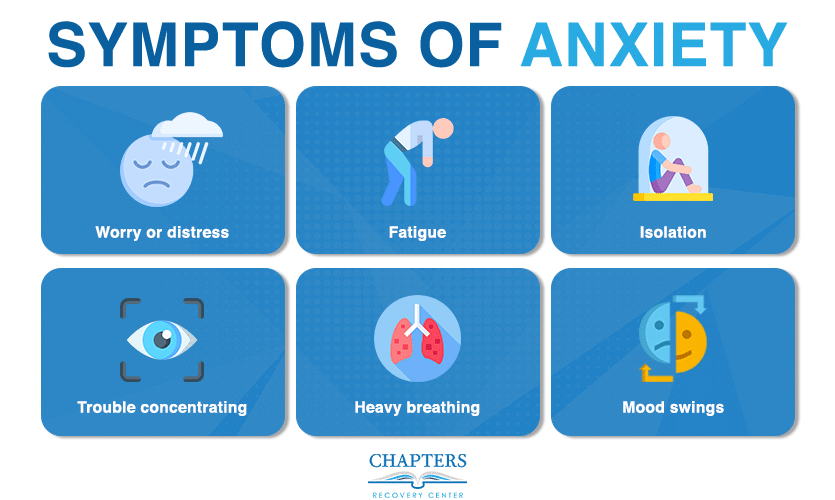According to the National Institute on Mental Health (NIMH), approximately 21 million adults experienced at least one major depressive episode in 2020. That equates to about 8.4% of adults in the United States. An estimated 4.1 million (17%) of the U.S. adolescent population (ages 12-17) experienced at least one major depressive episode in 2020. Unfortunately, depression knows no boundaries; it impacts people from all walks of life.
Depressive disorders can develop for a variety of reasons. Some people develop symptoms of depression after going through major life changes. Others may suffer from depression due to seasonal shifts. But, there are some who show signs of depression as a result of medication use. For instance, Adderall use may lead to mental health changes. This leads to the question at hand: can Adderall cause depression? Can this medication actually lead to the development of a mental health condition or, at least, some of its symptoms?
What is Adderall?
Firstly, it is necessary to understand that Adderall is a medication that has proven to be effective for many people who have narcolepsy or attention deficit hyperactivity disorder (ADHD). Adderall is a combination of dextroamphetamine and amphetamine. It affects the chemicals within the brain that contribute to impulse control and hyperactivity.
Adderall is a stimulant drug but it does not typically cause people to become “high” when people use it according to medical instruction. However, Adderall abuse can bring symptoms of euphoria. Individuals who use too much Adderall or use it more frequently than recommended may get high as a result. This pleasant feeling may encourage continued Adderall abuse. It may eventually lead to the development of an addiction to this prescription drug.
But, what about other possible issues that can arise from Adderall use? Can Adderall cause depression or other problems? If you use Adderall to treat narcolepsy or ADHD, it is important to know the possible outcomes of using this medication.
Side Effects of Adderall
Even when a person uses Adderall according to its proper use, side effects can occur. Some of the common side effects of Adderall include the following:
- Nausea
- Vomiting
- Diarrhea
- Dizziness
- Headache
- Dry mouth
- Appetite loss
- Upset stomach
- Stomach pain
Adderall can also cause people to develop a fever. Individuals who use Adderall may also experience nervousness and trouble sleeping. Some people may experience high blood pressure after using Adderall.
For these reasons and more, it is extremely important to discuss all of your options with your doctor. Again, this medication has certainly proven to help many people who are living with attention hyperactivity deficit disorder or narcolepsy. However, it may not be the best option for everyone. So, it is best to discuss this medication with your medical care provider.
What is Depression?

- Major depressive disorder
- Persistent depressive disorder
- Seasonal affective disorder (SAD)
- Postpartum depression
- Psychotic depression
- Bipolar disorder
Each type of depressive disorder has its own set of symptoms and signs. Some symptoms can be long-lasting while others may occur only at certain times. Some types of depression have a more specific and measurable onset while others develop more gradually, sometimes going undetected for a while.
Some of the most common signs and symptoms of depression are as follows:
- Appetite changes
- Lack of energy; fatigue
- Difficulty concentrating
- Feelings of worthlessness
- Unexplained weight loss or weight gain
- Inability to fall asleep or sleeping too much
- Loss of interest in previously enjoyable activities
- Continuous feelings of sadness
- Difficulty making decisions
- Suicidal thoughts
Again, the symptoms a person experiences vary depending on the type of depression he or she has. But, if any of these symptoms occur in a person’s life, it is important to seek a professional opinion as soon as possible.
Understanding the Connection Between Adderall and Depression
Adderall and depression are connected in multiple ways. In some cases, doctors may prescribe Adderall to treat depression. This medication can increase alertness and energy levels; depression often causes a decrease in these areas.
On the other hand, the abuse of stimulant substances can lead to the development of mood disorders. So, the link between Adderall and depression is fairly easily explained. There are several reasons why the abuse of Adderall can, in fact, lead to the development of depression in a person’s life. But one of the main ways in which Adderall use can lead to depression is withdrawal.
Symptoms of depression can set in if a person has been using high doses of Adderall for a while and suddenly stops. Adderall is commonly referred to as a “study drug”. Many college students and young adults use this medication in order to concentrate and focus while doing schoolwork. Some individuals who use Adderall as a study drug do not have a prescription for this medication. This means they are essentially dealing with Adderall abuse by definition.
If a person is abusing Adderall and they suddenly stop using it, he or she will experience withdrawal symptoms. In some situations, depression may occur as a symptom of withdrawal from a stimulant drug like Adderall.
So, can Adderall cause depression? In a way, yes. The misuse of Adderall can lead to depression.
Treatment for Adderall Abuse and Depression
If you are suffering from depression and Adderall abuse, you can receive treatment that will address all of your struggles. A dual diagnosis treatment program can address substance abuse and mental health disorders at the same time. So, by receiving treatment for your co-occurring disorders, you can overcome Adderall abuse and manage the symptoms of depression in your life.
As you work to leave Adderall abuse in the past, you will receive support and guidance through the following programs:
- Detox
- Inpatient Treatment
- Intensive Outpatient Program
- Partial Hospitalization Program
- Outpatient Treatment
- Therapy
Here at Chapters Recovery Center, we understand that there is no universal approach to addiction treatment. Each person who has a substance use disorder has individualized and unique needs. We also realize that, as people progress throughout the continuum of care, their recovery needs change. For these reasons, we seek to make sure our clients have access to a variety of addiction treatment resources and programs.









